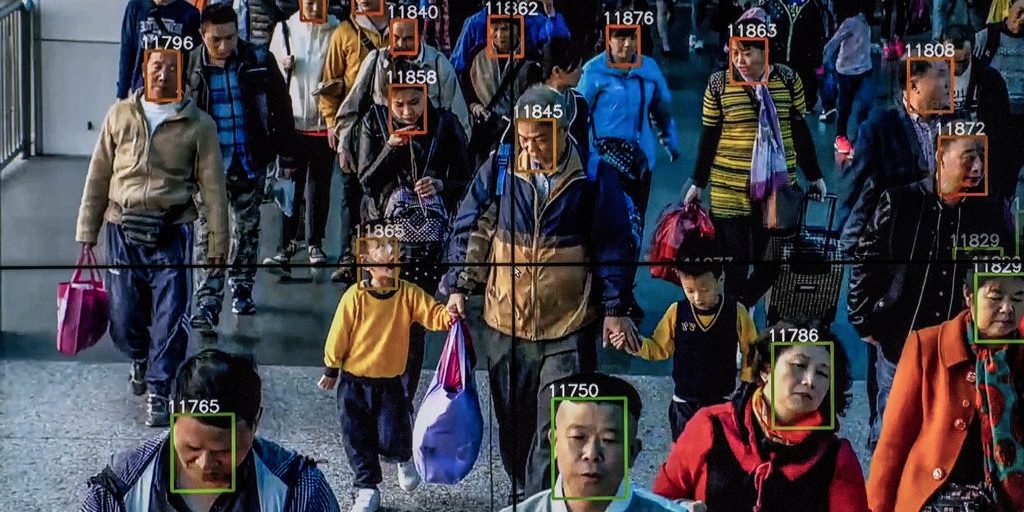ZHENGZHOU, China — In the Chinese city of Zhengzhou, a police officer wearing facial recognition glasses spotted a heroin smuggler at a train station.
In Qingdao, a city famous for its German colonial heritage, cameras powered by artificial intelligence helped the police snatch two dozen criminal suspects in the midst of a big annual beer festival.
In Wuhu, a fugitive murder suspect was identified by a camera as he bought food from a street vendor.
With millions of cameras and billions of lines of code, China is building a high-tech authoritarian future. Beijing is embracing technologies like facial recognition and artificial intelligence to identify and track 1.4 billion people. It wants to assemble a vast and unprecedented national surveillance system, with crucial help from its thriving technology industry.
“In the past, it was all about instinct,” said Shan Jun, the deputy chief of the police at the railway station in Zhengzhou, where the heroin smuggler was caught. “If you missed something, you missed it.”
China is reversing the commonly held vision of technology as a great democratizer, bringing people more freedom and connecting them to the world. In China, it has brought control.
 Megvii employees at the company’s offices in Beijing. CreditGilles Sabrié for The New York Times
Megvii employees at the company’s offices in Beijing. CreditGilles Sabrié for The New York Times
In some cities, cameras scan train stations for China’s most wanted. Billboard-size displays show the faces of jaywalkers and list the names of people who can’t pay their debts. Facial recognition scanners guard the entrances to housing complexes. Already, China has an estimated 200 million surveillance cameras — four times as many as the United States.
Such efforts supplement other systems that track internet use and communications, hotel stays, train and plane trips and even car travel in some places.
Even so, China’s ambitions outstrip its abilities. Technology in place at one train station or crosswalk may be lacking in another city, or even the next block over. Bureaucratic inefficiencies prevent the creation of a nationwide network.
For the Communist Party, that may not matter. Far from hiding their efforts, Chinese authorities regularly state, and overstate, their capabilities. In China, even the perception of surveillance can keep the public in line.
Some places are further along than others. Invasive mass-surveillance software has been set up in the west to track members of the Uighur Muslim minority and map their relations with friends and family, according to software viewed by The New York Times.
“This is potentially a totally new way for the government to manage the economy and society,” said Martin Chorzempa, a fellow at the Peterson Institute for International Economics.
“The goal is algorithmic governance,” he added.







